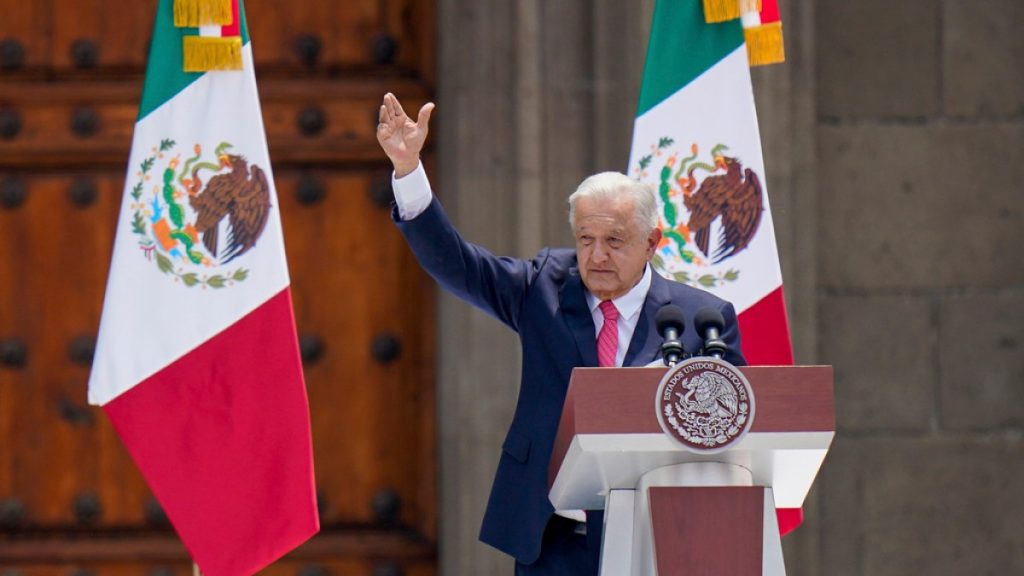In his final state-of-the-nation address, Mexico’s President Andres Manuel Lopez Obrador defended his legacy and addressed his supporters in Mexico City’s Zocalo Square. Despite facing criticism for a controversial plan to overhaul the country’s judiciary, Lopez Obrador continues to enjoy a 73 percent approval rating. He highlighted the progress made during his six-year term and emphasized the importance of building a new homeland and laying the foundations for the future. Thousands of his supporters gathered in the square to bid him farewell, expressing admiration for his presidency.
Lopez Obrador will hand over power to Claudia Sheinbaum, a close ally and the first woman president of Mexico, on October 1. Sheinbaum will inherit a series of constitutional reforms initiated by Lopez Obrador, including a plan to elect federal judges by popular vote. While the president argues that the change is necessary to combat corruption, critics fear that it will compromise the independence of the justice system. The proposed judicial changes have sparked protests from judicial workers, leading to concerns raised by the US Ambassador to Mexico about the impact on the bilateral relationship between the two countries.
During his address, Lopez Obrador defended the judicial overhaul plan, stating that it would ensure that judges serve the people and limit criminal influence in the courts. He highlighted his efforts to combat poverty in Mexico through social programs, direct credit transfers, and support for the elderly and young population. However, critics question his effectiveness in rooting out corruption in the country. Despite the concerns, Lopez Obrador’s supporters filled the Zocalo Square with signs saying “Gracias,” expressing gratitude for his presidency and the changes he implemented during his term in office.
The proposed judicial changes in Mexico, including the plan to elect federal judges by popular vote, have sparked a debate about the future of the country’s justice system. While Lopez Obrador argues that the reforms are necessary to combat corruption and strengthen democracy, opponents fear that they will undermine the independence of the judiciary. The upcoming transition of power to Claudia Sheinbaum will see the continuation of these reforms, raising concerns about their impact on Mexico’s democratic institutions and the rule of law. The US Ambassador to Mexico’s warning about the potential consequences of the changes underscores the international significance of the issue.
As Lopez Obrador prepares to leave office and pass the presidency to his successor, he faces criticism and support for his legacy as Mexico’s president. Despite concerns about the proposed judicial changes and questions about his effectiveness in fighting corruption, Lopez Obrador’s supporters remain enthusiastic about his leadership. The transition to a new president, Claudia Sheinbaum, will mark a new chapter in Mexico’s political landscape, with the continuation of the reforms initiated by Lopez Obrador. The challenges ahead will test the resilience of Mexico’s democratic institutions and the strength of its commitment to justice and the rule of law.


